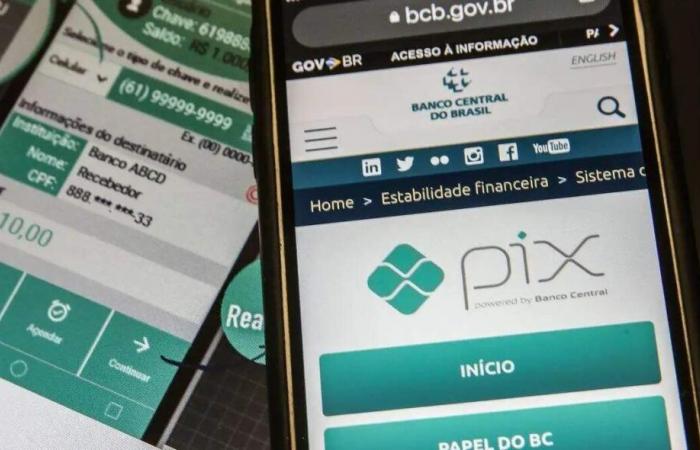The Central Bank (BC) is concerned about the increase in the dissemination of false information about matters involving the institution, especially about Pix. In the last month, in addition to lies about Pix, other false information circulated online about the BC or the authority’s areas of activity.
Given this, the internal assessment is that the monetary authority also needs to position itself as an agent in the fight against fake news, clarifying, when possible, the matter in question quickly and briefly, in order to avoid negative effects on the credibility of the institution or its services.
In the most recent case of fake news involving the Central Bank, false information is circulating on social media that the government will have control over citizens’ spending on Pix and that it may create a new tax on the use of the payment method in the midst of a new Federal Revenue rule on declaring financial transactions.
Financial transactions, such as Pix, TED and credit card purchases, cannot be monitored because they are protected by bank secrecy, a constitutional principle. The Federal Revenue and state tax authorities, however, may have access to financial transactions to monitor the payment of taxes, maintaining responsibility for secrecy.
The BC is concerned about reinforcing the guarantee of banking secrecy, because the dissemination of misinformation could lead to a flight to more opaque means of payment, such as cash, when one of Pix’s main gains was precisely the increase in the digitalization of the financial system.
In the case of the new Revenue standard, the only new thing is that payment institutions and credit card companies are now obliged to report to the tax authorities financial movements of individuals that exceed R$ 5 thousand per month, as the authorities already do. banks. This applies to Pix and other payment methods.
-In a note, the Revenue explained that there is no element that allows identifying the origin or nature of the expenses incurred. For example, when a person makes a transfer from their account to a third party, whether sending a PIX or carrying out a DOC or TED type operation, it is not identified to whom or under what title this individual amount was sent.
At the end of a month, all amounts left from the account are added up, including withdrawals and, if the limit of R$5,000 for an individual, or R$15,000 for a legal entity is exceeded, the financial institution will provide this information to the Federal Revenue Service.
In addition to the Pix case, the BC was hit by other false information at the end of last year. In mid-December, false statements by the current president of the BC, Gabriel Galípolo, were published on a social network profile.
Amid the financial market’s nervousness about the fiscal scenario, the posts wrongly said that Galípolo considered the rise in the dollar to be artificial and that a BRICS currency would protect Brazil from the influence of the American currency. The information is from the news portal O Globo.






